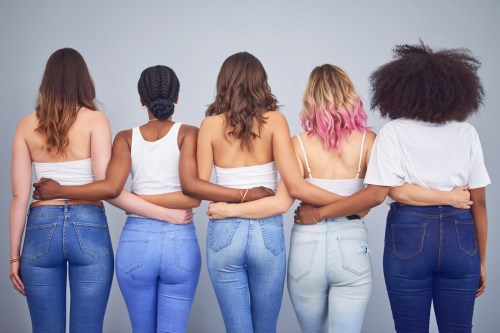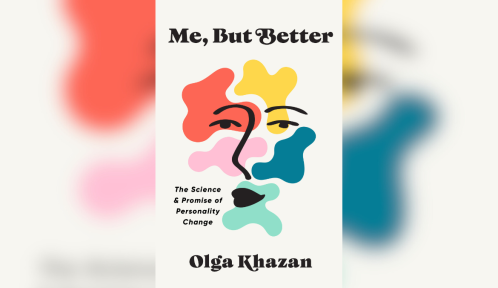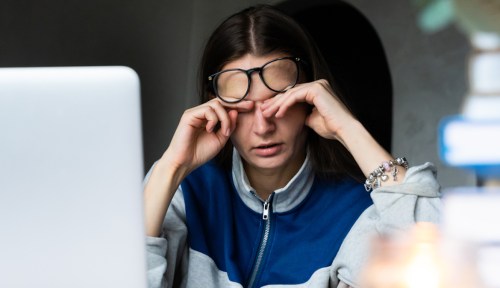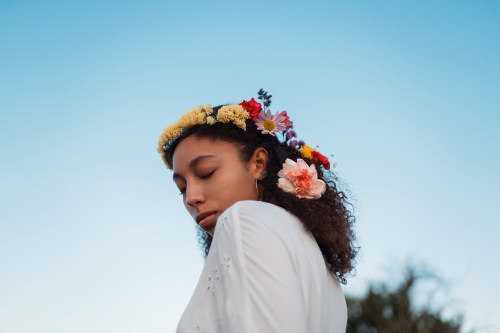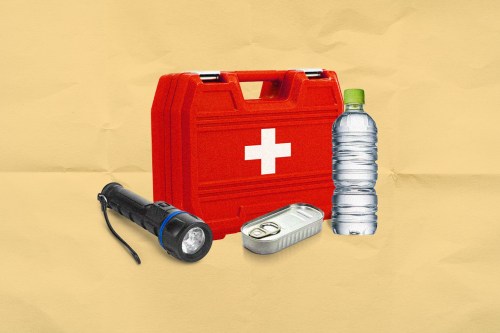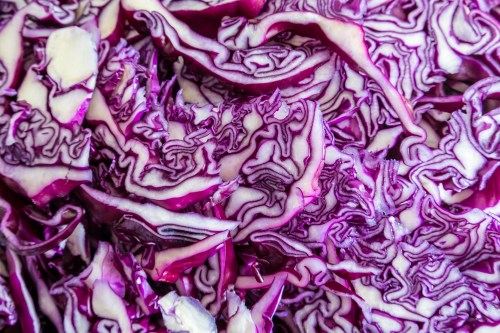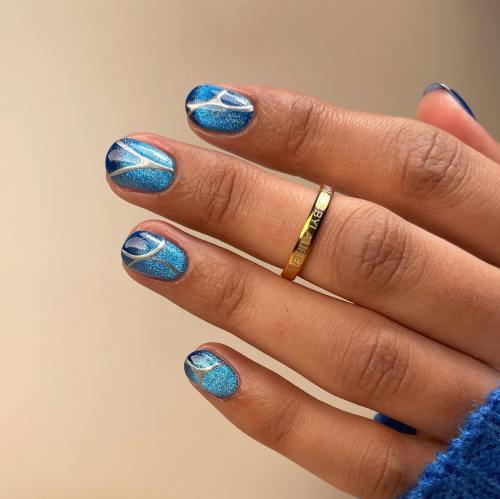Conversations around privilege can be tricky, as Black Lives Matter Toronto co-founder Janaya Khan discovered in the course of her anti-racism activism.
What white people often hear when confronted with the idea of their privilege, she found, was not that they enjoyed advantages over BIPOC but rather that they had never experienced hardship in their lives. This, she has said, would shut them down to dialogue. “To feel like your entire life, and all of your struggles and triumphs and tribulations, could just be reduced to rubble in a moment, it can be a very startling experience,” she explained.
So, she reframed the idea of white privilege to better enable discourse, in a quote that’s been widely circulated in recent weeks: “Privilege isn’t about what you’ve gone through; it’s about what you haven’t had to go through.”
This is critical to understanding that you can lack privilege in some areas while still retaining it in others. As Nicole Cardoza, an anti-racism activist working specifically in wellness points out, holding privilege in one area—e.g. race, gender, socioeconomic—doesn’t mean you don’t lack privilege in other areas; however, it also doesn’t exempt you from the benefits of the privilege you do hold.
Cardoza says she’s experienced white women, for example, counter confrontation around their white privilege with evidence of their gender disadvantage. This is a fundamental misunderstanding of the way privilege works, and many of us are guilty of it.
Understanding the various privileges you hold can help you to become more self-aware, commit fewer microaggressions, and practice more effective social justice activism. Below, an exploration of 18 different types of privilege—by no means an exhaustive list—so we can all better understand ourselves and our role in equality.
White privilege
Having white skin is a global privilege due to colonialism, but it is especially privileged in the United States. America was founded around systemic racism, and everything from policy to pop culture reinforces white privilege. Longtime anti-racism activist Peggy McIntosh once described this privilege as, “an invisible package of unearned assets.”
If you possess this privilege, it’s typical for you to exist in spaces where the majority of people look like you, to turn on the TV and see the same, to be treated more generously and less violently by authorities, to know that if you aren’t offered a job or approved for a home, it’s not because of your race, and on and on the advantages go.
White passing privilege
White passing privilege is when your skin color is white enough for you to pass as white regardless of your actual racial makeup. It’s a component of colorism, wherein lighter-skinned BIPOC are treated differently than those with darker skin. White passing people are not typically subject to the same prejudices as those with darker, more melanin-rich skin. The musician Halsey, for example, recently addressed her white passing privilege, noting that though her father is black, she passes as white and therefore does not face “the same violence” as the Black members of her family.
Male privilege (or gender privilege)
Being cis male is also a global privilege, and America was specifically designed as a patriarchy, aka a system of government in which men hold the power and women are excluded it from it, to institutionalize this advantage. If you are a cis man, you benefit from this setup in many invisible ways. “The fact that men are always in a position of power, that women are systemically disempowered in all areas—from business, to household dynamics to perceived intelligence, you name it, fill in the blank—is straight facts,” says Cardoza.
Holding male privilege means you aren’t greatly disadvantaged by not fitting into ideals of conventional beauty, that your “masculinity” is not connected to your childbearing or rearing decisions and capabilities, that you will likely do less of your household’s labor, that you may be able to walk alone at night without fear, that you can be sexually empowered without it being positioned as a negative, that you earn more money than women who do the same work as you, and more.
Male passing privilege also exists. If you are a trans man who passes as a cis man, you may be entitled to the same privileges.
Heterosexual privilege
Globally, heterosexuality is a privilege. It means that you benefit from identifying as straight and will not face the same discrimination or threats to your safety as a result of your sexuality. It can also mean that you have more rights. More specifically, heterosexual privilege can mean you don’t have to fear others finding out about your sexual orientation, that you can hold hands with your romantic partner without being scorned, mocked, or threatened, and that you are not identified as deviant or damaged because of who you are attracted to, among many other things.
Cisgender privilege
Cisgender privilege is when you identify with the gender to which you were assigned at birth. If you have this privilege, you are not likely to be harassed in public restrooms or locker room spaces, face questions about your genitals from strangers, be clinically considered mentally unwell, be regularly assigned the wrong pronoun, and more.
Socioeconomic privilege
Socioeconomic, or class, privilege relates to financial security. It’s navigated and shown when you don’t have to worry about affording necessities (e.g. food and shelter), you don’t have the burden of debt, you have control over your time, you’re able to only be exposed to others with the same privileges, you’re more likely to be perceived as innocent by the criminal justice system, you can afford good physical and mental health care, and much more. Most societies, including America, are designed in a way that reinforces and upholds class privilege.
Able-bodied privilege
To be able-bodied, free of chronic disease, possessing of all five senses, untouched by mental illness, and neurotypical is a privilege. Society is designed for those without these considerations, putting those who have them at a distinct disadvantage. As this able-bodied checklist points out, if you are presented with role models who are physically or mentally like you, are not asked to speak for an entire demographic, are not used as trauma porn (i.e. media which exploits traumatic moments of adversity to generate buzz, notoriety, or social media attention), and/or have not been written out of history (among other things), you have able-bodied privilege.
Religious privilege
Religious privilege is when your religion is the dominant religion, or the one considered to be the default “norm” where you live. In the U.S., that privilege falls to Christians. You can easily spot this bias in our country’s holiday calendar, which makes Christmas a bank holiday, or in the fact that we routinely swear oaths on the Bible. (These are just two of many examples.) Religious privilege also means you are not likely to be persecuted based on your religious affiliation—you can worship freely and safely.
Passport privilege
Passport privilege has to do with how easy it is for you to travel around the world based on the passport you hold. Those who carry American passports have historically been privileged in this manner; however, at present, US passport holders are restricted in their movements due to the severity of the country’s coronavirus outbreak. Still, if you held a passport from Afghanistan, you would only be able to freely visit a total of 25 countries—far fewer than the US, even now.
Birthplace privilege
The society into which you are born can offer you an advantage over others from your very first day on earth. If you are born into a so-called first-world country, for example, you are likely to experience better health, safety, and financial prospects than someone who is born into a third-world country.
Location-based privilege
Where you live has other implications with respect to privilege, too. If you live near a big city, for example, you will have access to a greater number and variety of job prospects than someone who does not, including those which promise higher wages and greater prestige.
Geographical privilege
Geographical privilege refers to the idea that while you may have privilege where you live, you might travel abroad and find that you do not have privilege in another place. For example, a lighter-skinned Brazilian might enjoy privilege in Brazil, where colorism is rampant, but not as much in the United States, where they would be at a greater disadvantage due to white privilege.
Non-immigrant privilege
If you were born in the country where you live, you are likely to enjoy a number of benefits not enjoyed by those who emigrate. This includes legal privileges and voting privileges, natively speaking the dominant language, and less career, health, and social discrimination. In the US, it also means that you never have to worry about being kicked out of the country on a politician’s whim.
Transportation privilege
Transportation privilege has to do with how easy it is for you to get from point A to point B. Can you hop in your car? Walk or bike safely? Access affordable, reliable, and efficient public transportation? All of the above equal privilege. And if you can drive to work in 20 minutes versus taking that aforementioned public transport with triple the time cost, that’s privilege, too. Getting from place to place safely and swiftly is important for many reasons, most notably in that it affects your access to employment and education.
Beauty privilege
If you are attractive in a way that aligns with the dominant beauty ideals of your culture, you are likely to benefit from that attractiveness. You may also benefit from being perceived as attractive even if your appearance does not fit those dominant ideals. In any case, possessing the privilege of beauty means you’re likely to experience greater career success and make more money, be less persecuted within the criminal justice system, and have more positive social interactions, among other things. Don’t believe it? Consider how hard you work to achieve beauty ideals, and then ask yourself why you would bother so much if there were no inherent benefits.
Age privilege
In America youth is highly valued, especially in women. So, if you’re young, you have a privilege that older people don’t, and that privilege incrementally decreases with age. The younger you are (as an adult), the more likely you are to see yourself represented in pop culture and advertising, be valued for your ideas/art, be considered attractive (which is its own privilege), and more.
Couple privilege
In our society, being traditionally coupled, 1:1, is an advantage because it’s considered to be a norm versus remaining single or opting for a less traditional relationship structure, e.g. polyamory. You may enjoy a greater number of rights, benefit financially, and be less likely to be stigmatized.
Sign Up for Our Daily Newsletter
Get all the latest in wellness, trends, food, fitness, beauty, and more delivered right to your inbox.
Got it, you've been added to our email list.
